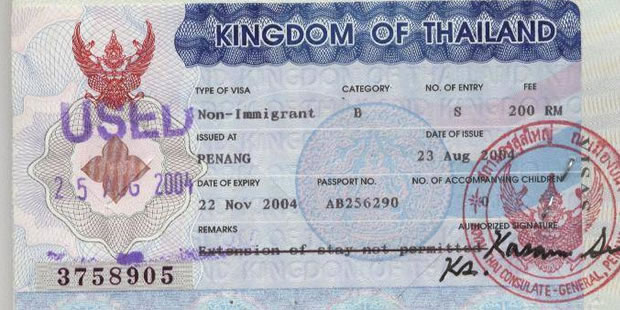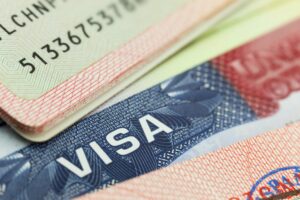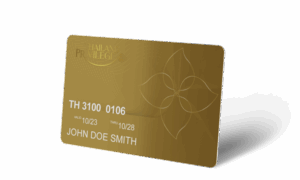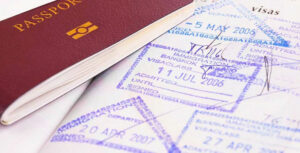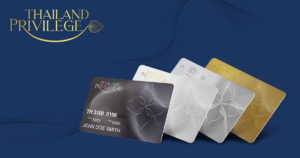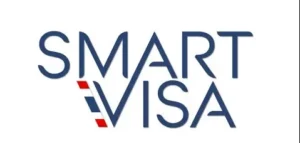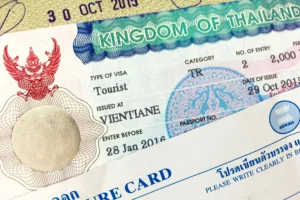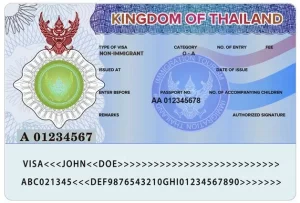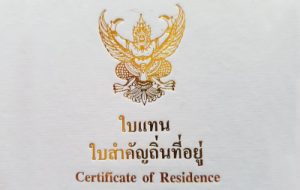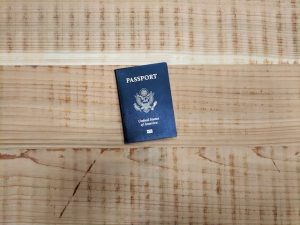Thailand Business Visas. Thailand, known for its vibrant economy and strategic location in Southeast Asia, is a hub for business and trade. For those looking to explore business opportunities in Thailand, obtaining a business visa is a crucial first step. However, the process is multifaceted, involving various requirements, types of visas, and regulations that applicants must navigate. This article provides a comprehensive analysis of the Thailand Business Visa, offering insights into its types, application procedures, legal implications, and practical considerations for foreign business professionals.
1. Understanding the Thailand Business Visa
The Thailand Business Visa is a category of non-immigrant visas that allows foreign nationals to enter Thailand for business purposes, such as attending meetings, conducting negotiations, exploring investment opportunities, or managing business operations. There are several types of business visas, each catering to different business activities and durations of stay.
1.1 Types of Thailand Business Visas
- Non-Immigrant Visa “B” (Single Entry): This visa is issued for a single entry and is valid for 90 days. It is suitable for short-term business activities, such as meetings or negotiations. The visa must be used within three months of issuance.
- Non-Immigrant Visa “B” (Multiple Entry): This visa allows multiple entries into Thailand over a period of one year, with each stay not exceeding 90 days. It is ideal for business professionals who need to travel frequently to Thailand.
- Non-Immigrant Visa “B-A” (Business Approved Visa): This type of visa is issued to those who have received an approval from the Ministry of Labour for employment in Thailand. It allows the holder to apply for a work permit and is often used by foreign employees working for Thai companies.
- Non-Immigrant Visa “IB” (Investment and Business Visa): Designed for foreign investors, this visa is issued to those who plan to make substantial investments in Thailand. It requires an endorsement from the Board of Investment (BOI) and is typically part of the incentives offered under BOI-promoted projects.
- SMART Visa: The SMART Visa is a special visa program designed to attract highly skilled professionals, investors, executives, and startup entrepreneurs in targeted industries. This visa offers longer stay periods, exemptions from work permits, and other privileges, making it a popular choice for high-level business professionals.
2. Application Process for the Thailand Business Visa
The application process for a Thailand Business Visa involves several steps, including gathering the required documentation, submitting the application, and attending interviews if necessary. Understanding these steps is essential for a smooth application experience.
2.1 Required Documentation
The documentation required for a Thailand Business Visa varies depending on the type of visa and the applicant’s specific circumstances. However, the following are generally required:
- Passport: A valid passport with at least six months of validity and blank pages for visa stamps.
- Visa Application Form: A completed visa application form, which can be obtained from the Thai embassy or consulate where the application will be submitted.
- Photographs: Recent passport-sized photographs that meet the specific requirements set by the Thai authorities.
- Letter of Invitation: A letter of invitation from the Thai company or business partner, detailing the purpose of the visit, the nature of the business relationship, and the duration of the stay.
- Company Registration Documents: Copies of the Thai company’s registration documents, including the Certificate of Incorporation, List of Shareholders, and Company Affidavit, are often required.
- Proof of Financial Stability: Bank statements or other financial documents that demonstrate the applicant’s ability to support themselves during their stay in Thailand.
- Employment Contract: If applicable, an employment contract or letter of appointment from the Thai employer is required for those seeking a work-related business visa.
- Endorsement from BOI or Ministry of Labour: For certain types of visas, such as the Non-Immigrant Visa “IB” or the SMART Visa, an endorsement from the relevant Thai government body is required.
2.2 Submission and Processing
The application for a Thailand Business Visa must be submitted to a Thai embassy or consulate in the applicant’s home country or country of residence. The submission can usually be done in person or through an authorized representative.
- Processing Time: The processing time for a business visa can vary, but it typically takes 3-5 working days. However, for visas that require additional endorsements, such as the Non-Immigrant Visa “IB,” the processing time may be longer.
- Visa Fee: The visa fee also varies depending on the type of visa and the applicant’s nationality. It is payable upon submission of the application and is non-refundable, even if the visa application is denied.
- Interviews: In some cases, the Thai embassy or consulate may require the applicant to attend an interview as part of the visa process. The interview typically focuses on the purpose of the visit, the applicant’s business background, and their intended activities in Thailand.
3. Legal Implications and Compliance
Obtaining a Thailand Business Visa comes with certain legal obligations and compliance requirements. It is essential for visa holders to understand these to avoid potential legal issues during their stay in Thailand.
3.1 Visa Validity and Extensions
- Validity Period: The validity period of a Thailand Business Visa depends on the type of visa issued. Single-entry visas are typically valid for 90 days, while multiple-entry visas may be valid for one year. The stay duration for each entry is usually limited to 90 days.
- Visa Extensions: If the visa holder needs to stay in Thailand beyond the initial visa period, they can apply for a visa extension at the Immigration Bureau in Thailand. Extensions are typically granted in increments of 90 days, but longer extensions may be possible for certain types of visas or under special circumstances.
3.2 Work Permit Requirements
While a business visa allows entry into Thailand for business purposes, it does not automatically grant the holder the right to work in Thailand. A separate work permit is required for those intending to engage in employment or business operations within Thailand.
- Work Permit Application: The work permit application is usually processed after the visa holder arrives in Thailand and must be submitted to the Ministry of Labour. The employer must sponsor the application, and the applicant must provide the necessary documents, such as the employment contract and company registration documents.
- Penalties for Working Without a Permit: Working in Thailand without a valid work permit is illegal and can result in severe penalties, including fines, imprisonment, and deportation. It is crucial for business visa holders to ensure they comply with work permit regulations before engaging in any work-related activities.
3.3 Compliance with Thai Laws
Visa holders must comply with all Thai laws during their stay. This includes not only immigration and employment laws but also business regulations, tax obligations, and other legal requirements related to their business activities in Thailand.
- Tax Obligations: Foreign business professionals may be subject to Thai taxes, depending on the nature and duration of their stay and business activities. It is advisable to consult with a tax advisor to understand any potential tax liabilities and ensure compliance with Thai tax laws.
- Legal Representation: Given the complexities of Thai business and immigration laws, many foreign business professionals choose to work with a Thai legal firm to navigate the legal landscape and ensure full compliance with all regulations.
4. Practical Considerations for Business Professionals
In addition to the legal and procedural aspects of obtaining a Thailand Business Visa, there are practical considerations that business professionals should take into account to ensure a successful and productive stay in Thailand.
4.1 Cultural Sensitivity and Business Etiquette
Thailand has a unique business culture that blends traditional Thai customs with modern business practices. Understanding and respecting local business etiquette can go a long way in building successful business relationships in Thailand.
- Respect for Hierarchy: Thai business culture places a strong emphasis on respect for hierarchy and seniority. When conducting business meetings, it is important to address senior members first and show proper respect to all participants.
- Greetings and Communication: The traditional Thai greeting, known as the “wai,” involves pressing the palms together and bowing slightly. While handshakes are also acceptable, the wai is considered more respectful, especially when greeting senior or older business associates.
- Dress Code: Business attire in Thailand is generally conservative. Men typically wear suits and ties, while women wear formal business dresses or suits. It is important to dress appropriately, particularly for formal meetings and events.
4.2 Networking and Building Relationships
Networking is a key component of doing business in Thailand. Building strong relationships with local business partners, government officials, and industry peers can provide valuable support and open doors to new opportunities.
- Attending Business Events: Participating in business events, such as conferences, trade shows, and networking gatherings, is an excellent way to meet potential partners and stay informed about industry trends in Thailand.
- Joining Business Associations: Foreign business professionals can benefit from joining local business associations, such as the Thai Chamber of Commerce or industry-specific groups. These associations often provide resources, support, and networking opportunities for their members.
4.3 Language and Communication
While English is widely spoken in the business community, especially in Bangkok and major cities, it is still advisable to have some knowledge of the Thai language or to work with a translator, particularly when dealing with legal documents or communicating with government officials.
- Learning Basic Thai: Learning basic Thai phrases can enhance communication and show respect for the local culture. It can also be helpful in everyday interactions, such as navigating the city or ordering food.
- Using Professional Translation Services: For important business communications and legal documents, it is recommended to use professional translation services to ensure accuracy and avoid misunderstandings.
Conclusion
The Thailand Business Visa is a gateway to a wealth of business opportunities in one of Southeast Asia’s most dynamic economies. However, successfully obtaining and using this visa requires a thorough understanding of the various visa types, application procedures, legal implications, and practical considerations.
By taking the time to navigate these complexities and seeking professional advice where necessary, business professionals can ensure a smooth and successful experience in Thailand. Whether you are looking to explore new business opportunities, invest in Thai industries, or manage existing operations, the Thailand Business Visa provides the necessary legal framework to support your endeavors in the Land of Smiles.

